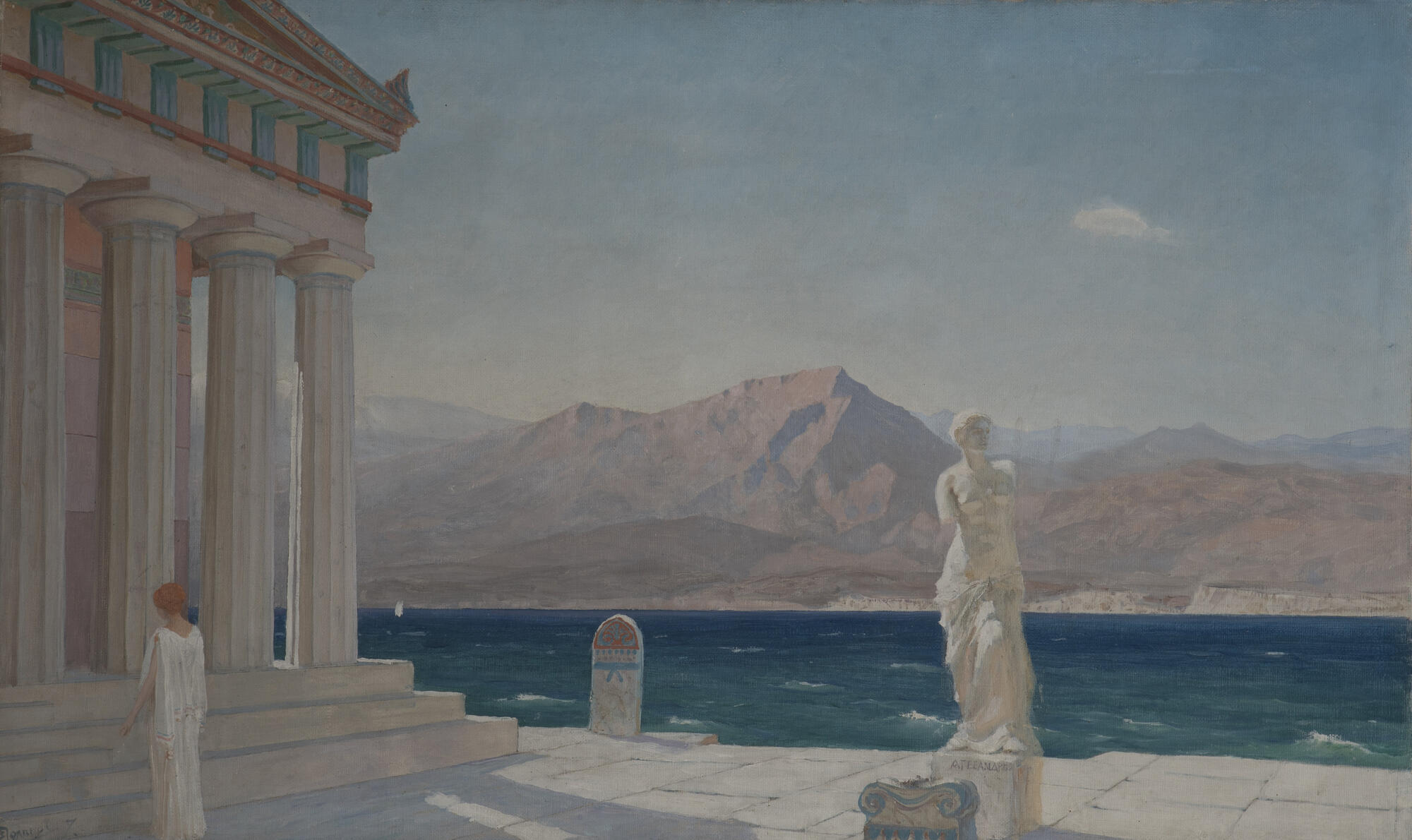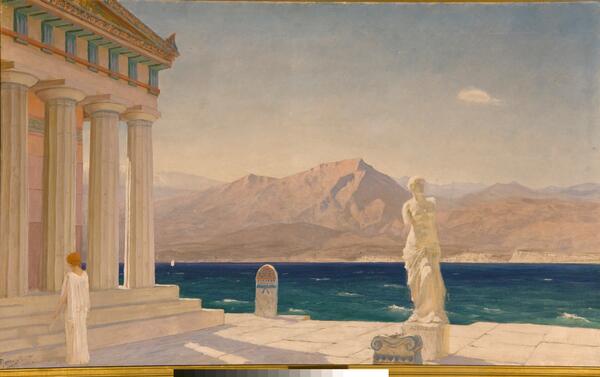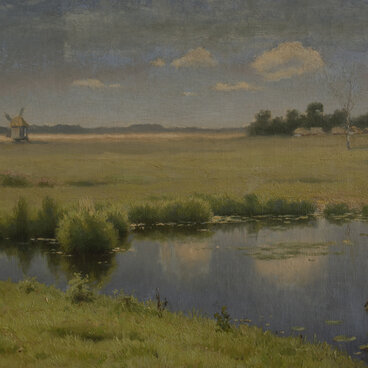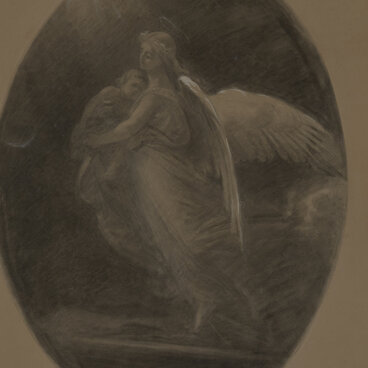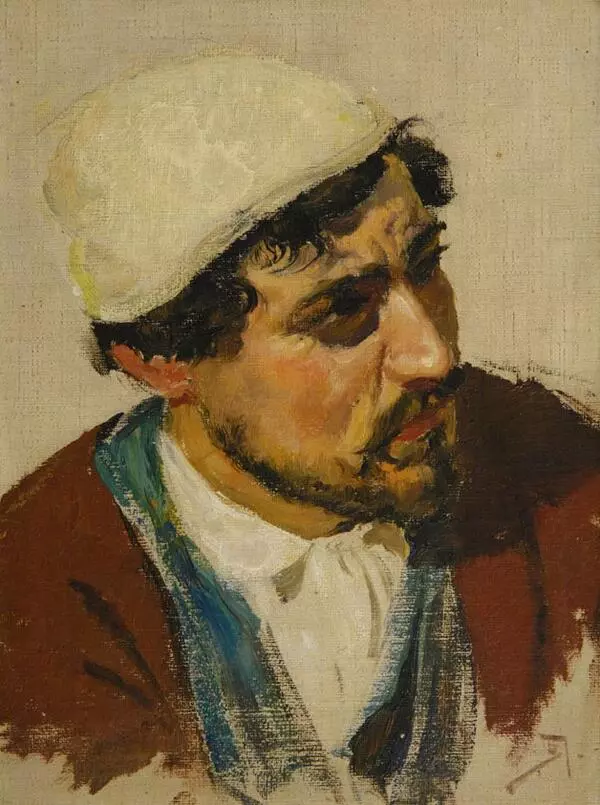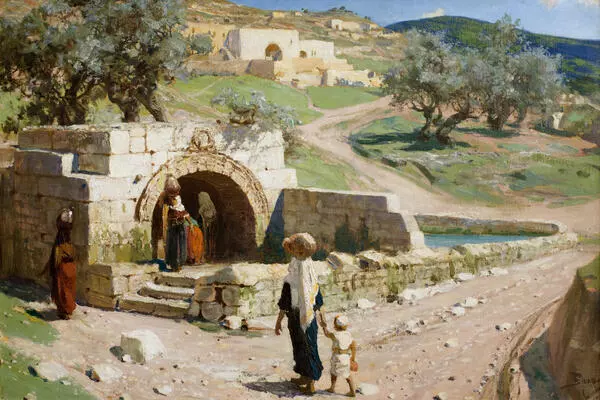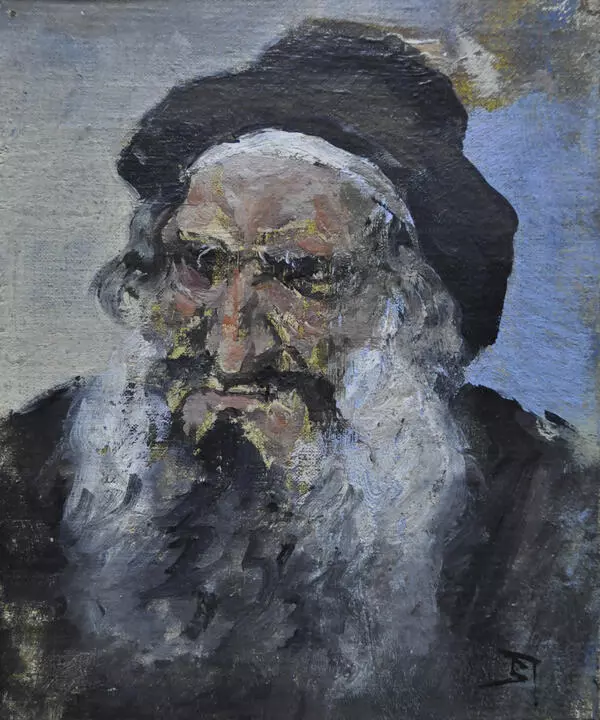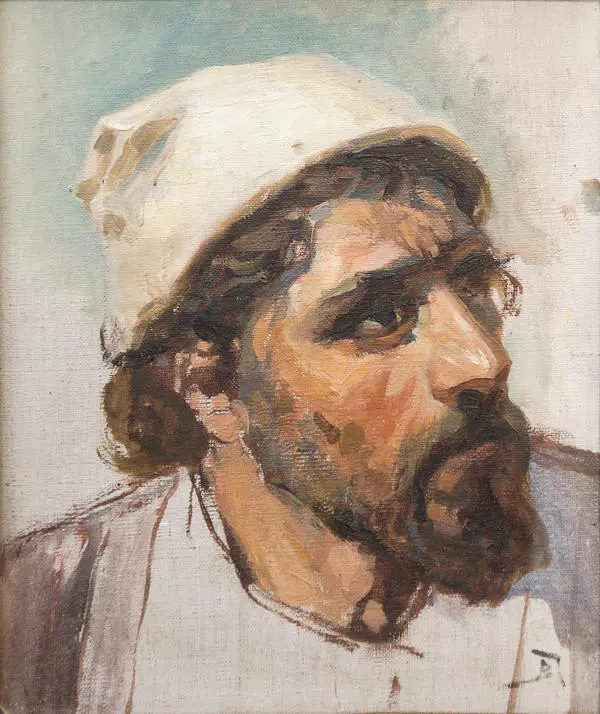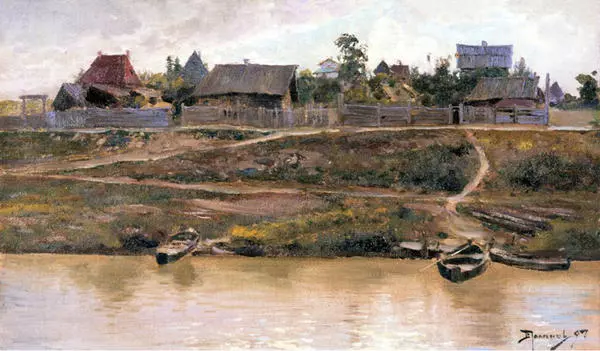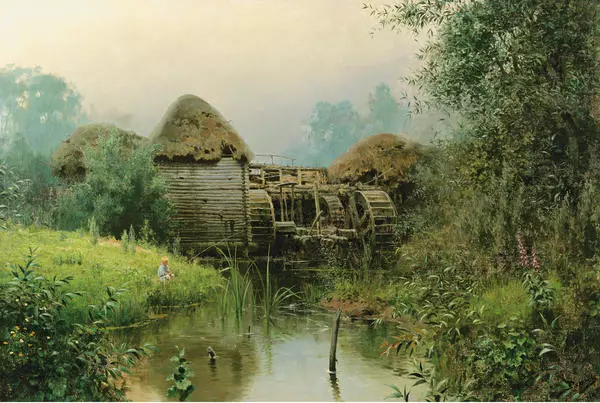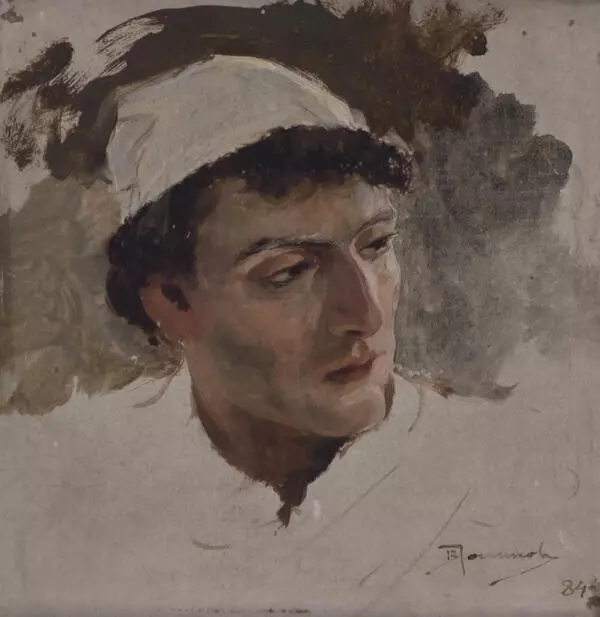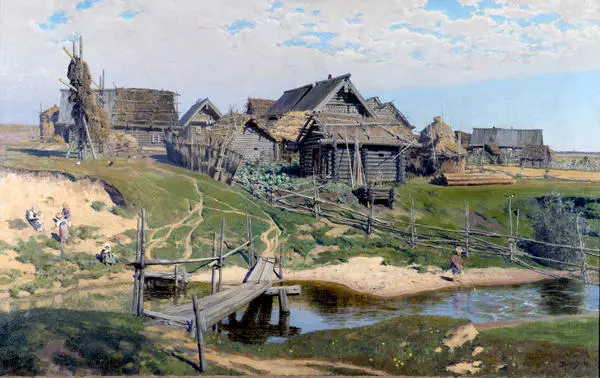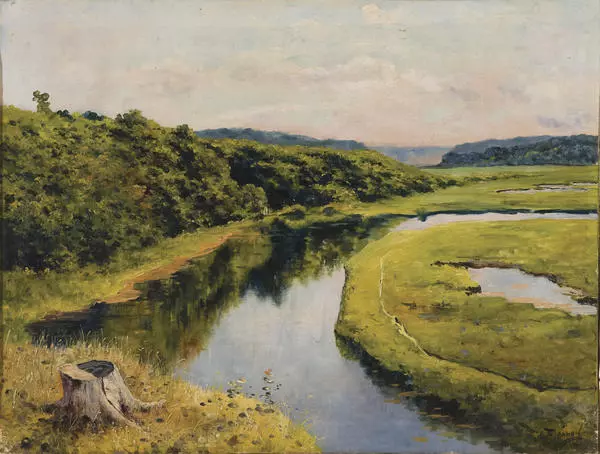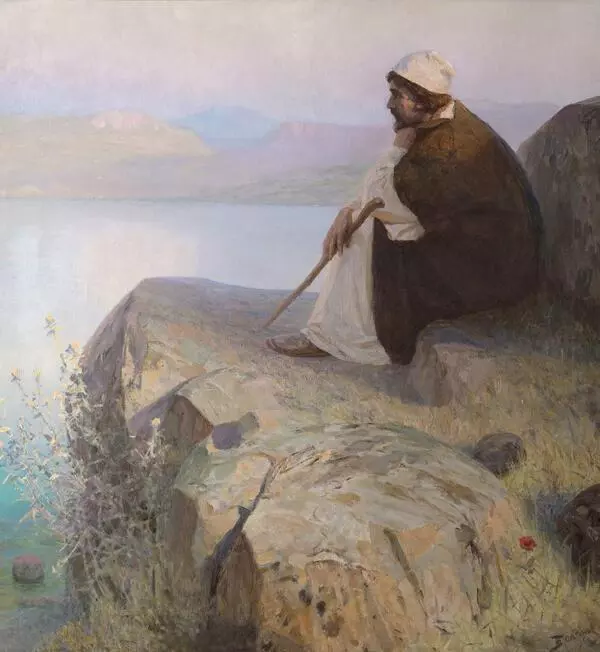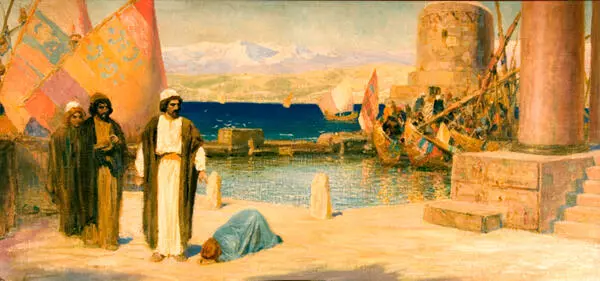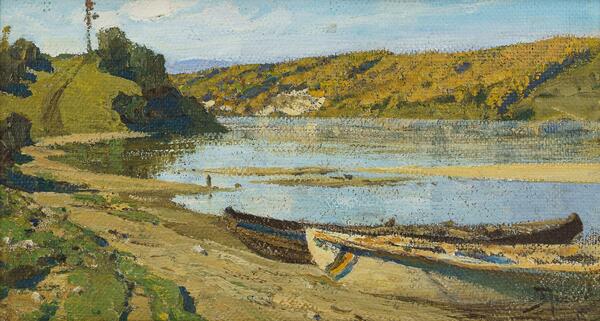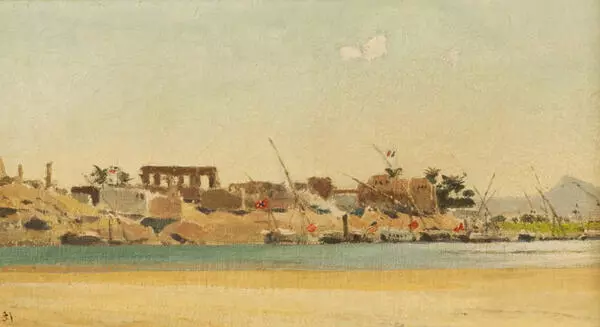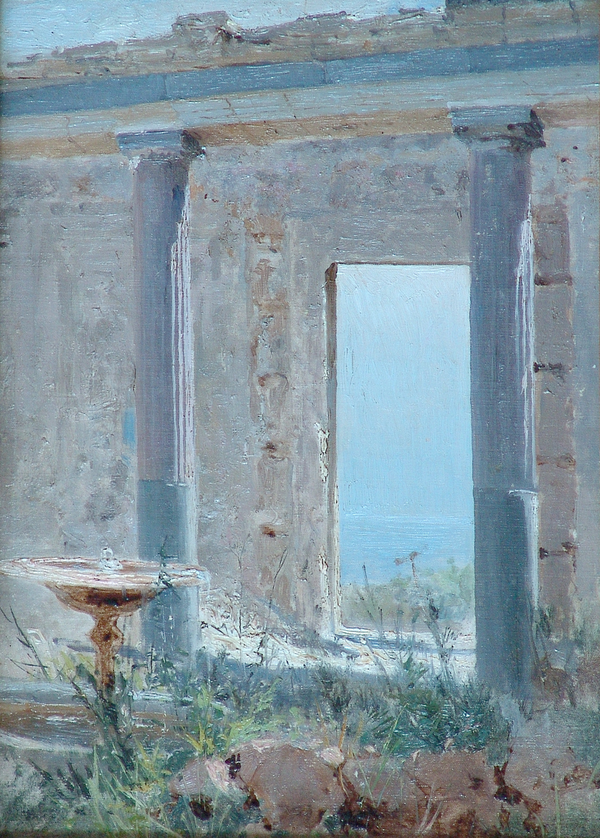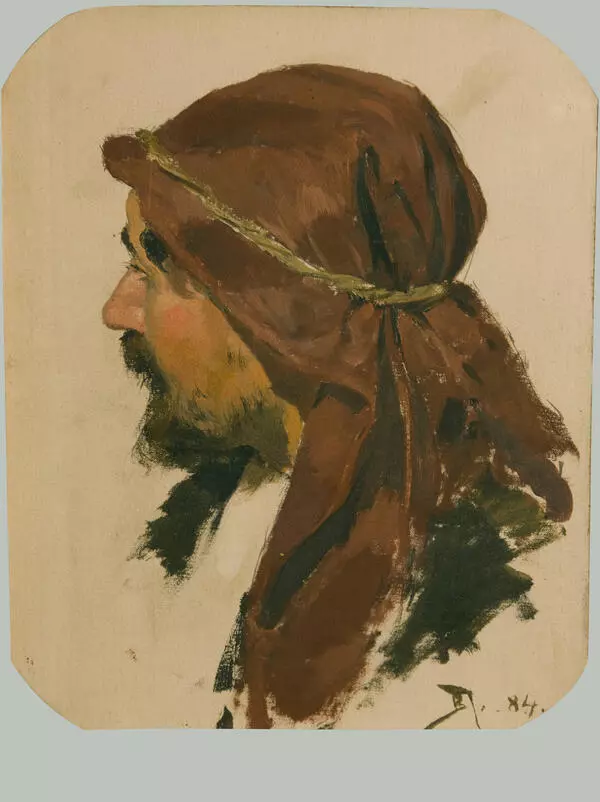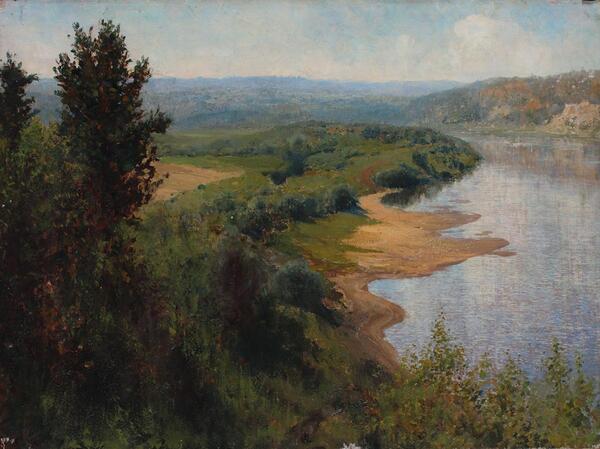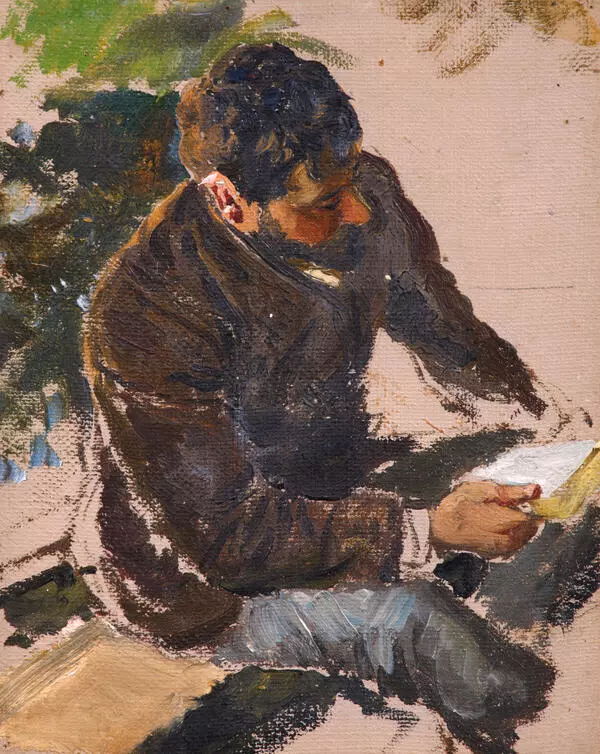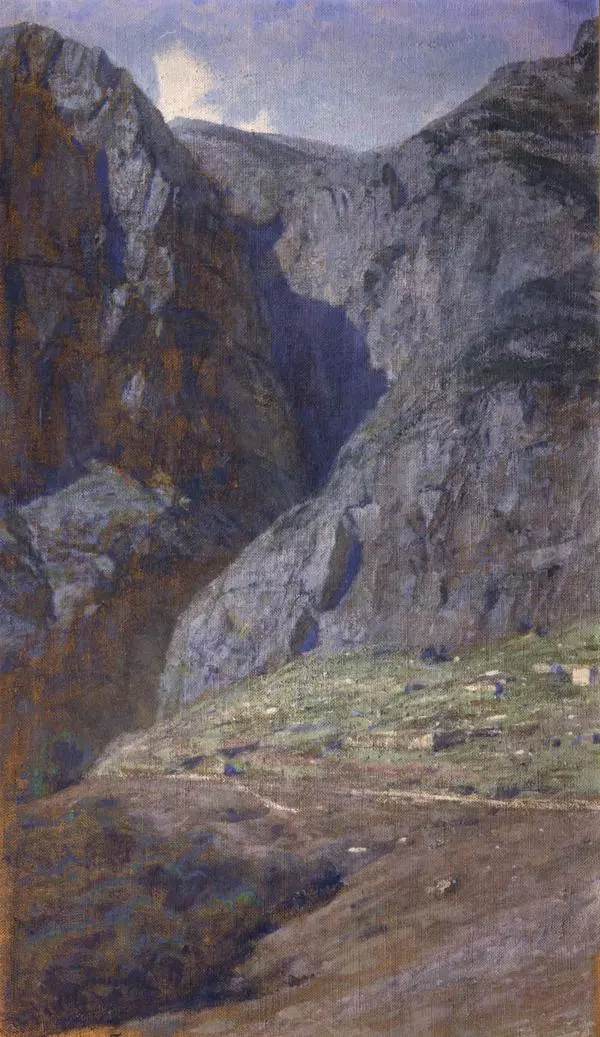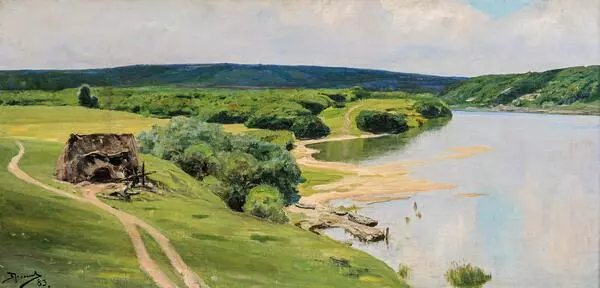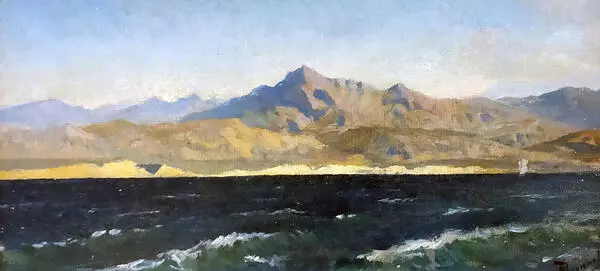The Ostrogozhsk Museum of History and Art houses one of the backdrops for the opera “The Ghosts of Hellas” created by the prominent Russian artist Vasily Dmitriyevich Polenov. The scenery depicts a seashore. To the left is a church porch, in front of it is a statue of the Venus de Milo, while in the background, there is a blue sea, and behind it — soft outlines of the coasts far away. Interestingly, Vasily Polenov did not only create the set design but also contributed to composing music for the opera.
Vasily Polenov was born into an intellectual and noble family in St. Petersburg in 1844. His father was a high-level public official and at the same time a famous archaeologist and bibliographer, while his mother was a portraitist of the Bryullov school. From his parents, Vasily inherited both talents — for science and art. Having noticed that their son was interested in painting, Vasily’s parents invited a tutor — Pavel Chistyakov who was a student at the Academy of Arts. Chistyakov at once recognized that the fifteen-year-old painter had a unique talent of a colorist. Polenov also took lessons with Ivan Kramskoy. Following their family tradition, he entered law school at the St. Petersburg University, and in 1871, graduated both from law school and the historical painting class at the Academy of Arts.
Vasily Polenov’s life was in many ways connected with the Mamontov family. In 1882, the painter married Natalya Vasilyevna Yakunchikova — the cousin of Yelizaveta Grigoryevna Mamontova. At the house of Savva Mamontov, Polenov painted the scenery for amateur plays “Two Worlds” (1879) and “The Red Rose” (1883), and together with other artists worked for the Moscow Private Russian Opera founded by Mamontov. The artists established a new movement in set design. Their backdrops contributed to a deeper emotional and artistic interpretation of performances. Vasily Polenov was also fascinated with music which he loved deeply. He carried this love throughout his life — from early childhood to old age. Without any systematic music education, the painter accumulated necessary music knowledge, expanded his horizons and mastered composing by means of self-study and communication with musicians. He composed songs, music for a piano, a violin, and a trio, created music for dramas, and contributed to composing the opera “The Ghosts of Hellas”.
Vasily Polenov was born into an intellectual and noble family in St. Petersburg in 1844. His father was a high-level public official and at the same time a famous archaeologist and bibliographer, while his mother was a portraitist of the Bryullov school. From his parents, Vasily inherited both talents — for science and art. Having noticed that their son was interested in painting, Vasily’s parents invited a tutor — Pavel Chistyakov who was a student at the Academy of Arts. Chistyakov at once recognized that the fifteen-year-old painter had a unique talent of a colorist. Polenov also took lessons with Ivan Kramskoy. Following their family tradition, he entered law school at the St. Petersburg University, and in 1871, graduated both from law school and the historical painting class at the Academy of Arts.
Vasily Polenov’s life was in many ways connected with the Mamontov family. In 1882, the painter married Natalya Vasilyevna Yakunchikova — the cousin of Yelizaveta Grigoryevna Mamontova. At the house of Savva Mamontov, Polenov painted the scenery for amateur plays “Two Worlds” (1879) and “The Red Rose” (1883), and together with other artists worked for the Moscow Private Russian Opera founded by Mamontov. The artists established a new movement in set design. Their backdrops contributed to a deeper emotional and artistic interpretation of performances. Vasily Polenov was also fascinated with music which he loved deeply. He carried this love throughout his life — from early childhood to old age. Without any systematic music education, the painter accumulated necessary music knowledge, expanded his horizons and mastered composing by means of self-study and communication with musicians. He composed songs, music for a piano, a violin, and a trio, created music for dramas, and contributed to composing the opera “The Ghosts of Hellas”.
